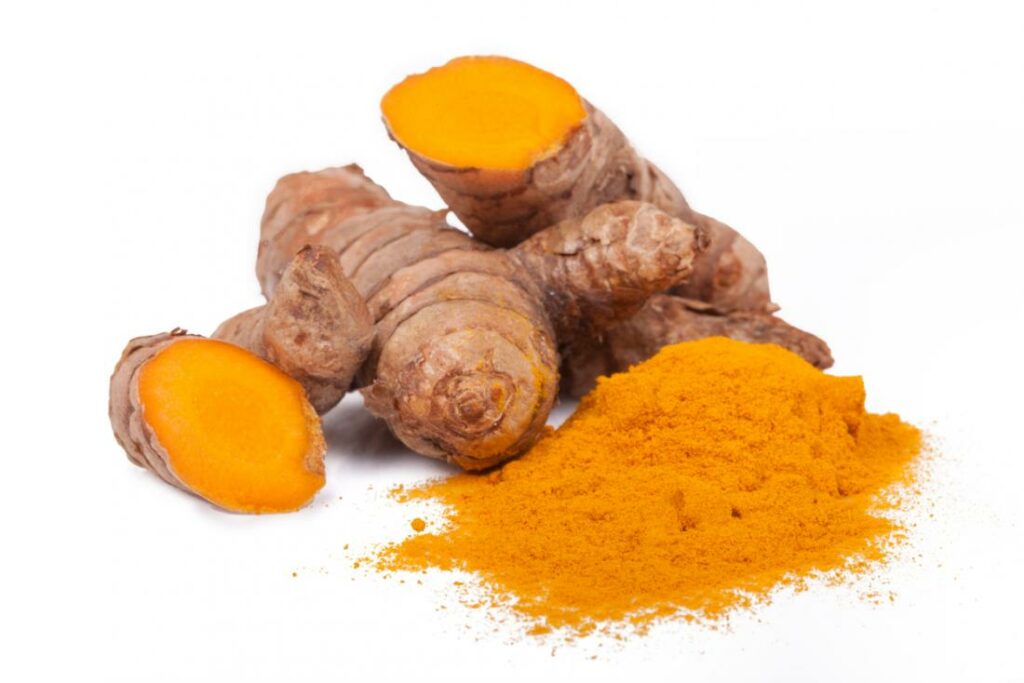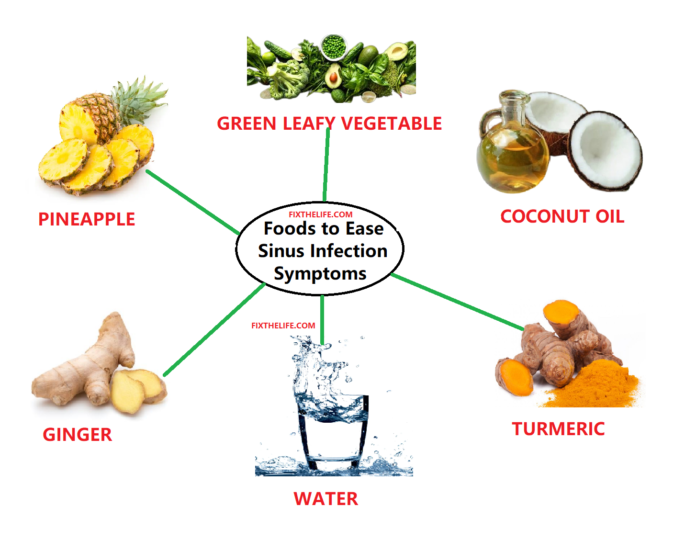Regarding sinus infections, diet dramatically affects how your body reacts. Eating the wrong foods and not eating enough of the right ones can exacerbate symptoms or make them worse.
A nutritious diet can decrease inflammation and bolster your immunity to bacteria that cause sinus infections. These foods can also help thin mucus and unclog nasal passages, reducing congestion and easing breathing.
What is Sinus Infection?
A sinus infection, also known as Sinusitis, is when the tissue lining the spaces around your nose, eyes, and cheeks gets inflamed or infected. There are two types: acute (lasts less than 4 weeks) and chronic (lasts more than 12 weeks).
Viruses, bacteria, or fungi can cause it. The symptoms are facial pain or pressure, stuffy nose, headache, cough, tiredness, and trouble smelling or tasting things.
To treat sinus infection, you can use medicine like decongestants or antibiotics or try things like rinsing your nose with saltwater or breathing in steam. If it’s really bad, you might need surgery.
Symptoms
The symptoms of a sinus infection, also known as sinusitis, can vary depending on the type of sinusitis and its severity. Common symptoms include:
- Facial pain or pressure
- Congestion or stuffiness
- Nasal discharge (thick yellow or green mucus)
- Headache (often worsened by bending over or lying down)
- Postnasal drip (mucus dripping down the back of the throat)
- Cough
- Fatigue
- Reduced sense of smell or taste
- Toothache
- Ear pressure or fullness
- Sore throat
There are two kinds of sinusitis: one that lasts for a short time and one that lasts for a long time. A virus usually causes the short one and lasts less than four weeks.
Bacteria or fungi can cause the long one and last more than 12 weeks. If you have any symptoms, it’s best to see a doctor for proper treatment.
ALSO READ: How To Regain a Sense of Smell Naturally?
Best Anti-Inflammatory Foods to Ease Sinus Infection Symptoms
Pineapples
If you’ve ever had a cold, you’re familiar with the irritation that causes a runny nose and a cough. Often, the cause of this congestion is inflammation in your sinuses, which infections or allergies can cause.
A few foods can help relieve symptoms and reduce the severity of sinus infections.
Fruits, such as cherries, berries, apples, and pears, and vegetables, like kale, spinach, kiwi, and broccoli, are full of antioxidants that protect the mucous membranes in your sinuses from inflammation.
Other anti-inflammatory foods to try include garlic, turmeric, and ginger. These spices also have antioxidants and can help clear nasal congestion and mucus.
Ginger
If you have a runny nose, sneezing, and coughing, it can be a sign of sinusitis. If these symptoms last for a long time or are worse at night, you need to seek medical help.
Ginger is one of the finest foods for sinus infection remedies since it has anti-inflammatory and antioxidant characteristics that will lessen discomfort, swelling, and congestion. It will also ease the headaches that a sinus infection may bring.
Adding spicy food like cayenne pepper and chili peppers to your diet can relieve nasal congestion. This is because the capsaicin in these spicy foods will stimulate a runny nose, which can clear up mucus and reduce irritation of the sinuses.
Turmeric

Sinus infections can be a real pain, but the good news is some foods can ease your symptoms. They contain immune-supporting nutrients that can help reduce sinus pressure, headaches, and congestion.
One such food is turmeric, which has anti-inflammatory and antioxidant properties that can speed healing, decrease pain, and reduce swelling. It also has antihistamine properties that help ease sinus pain, allergies, and discomfort.
The best way to use turmeric is by adding it to warm beverages, such as teas and soups. Curcumin in turmeric can reduce inflammation and prevent the spread of infection.
Coconut Oil
Coconut oil is one of the best anti-inflammatory foods you can eat, and it’s also known for its ability to relieve symptoms associated with sinus infections.
Adding a few drops of this oil to a glass of water or tea is a simple and effective way to reduce inflammation, ease pain, and get your sinuses back on track.
Eat More Inflammation-Busting Foods
Eating plenty of fruits, vegetables, and whole grains is an excellent way to bolster your body’s natural defenses against harmful inflammation.
Greens like spinach, kale, leaf lettuce, Swiss chard, and collard greens reduce mucus and inflammation.
At the same time, tomatoes have a high concentration of lycopene and can help to reduce oxidative stress and inflammatory conditions.
Additionally, consuming anti-inflammatory foods like turmeric and ginger will help to keep your sinuses clear and healthy. It’s worth noting that a healthy lifestyle and regular exercise will help to prevent sinus infections in the first place.
Water
Your sinuses are pockets along your nose, cheekbones, and forehead that produce mucus to filter out incoming bacteria. But colds, allergies, nasal polyps, and a deviated septum can clog those sinuses, making a thick, sticky mucus that leads to sinus infection symptoms like headache, congestion, and pressure.
The best way to ease sinus infection symptoms is to keep your body and nasal cavity well-hydrated.
Keeping your mucous membranes moist will help your immune system to fight off viruses, bacteria, and fungi that cause a sinus infection.
Mix honey with warm water for a quick and effective way to soothe your sore throat and sinuses.
Honey has antibacterial properties, killing bacteria that often cause sinus infections. It also helps the sore throat that often accompanies a sinus drip.
Key Takeaways
- A sinus infection, also known as sinusitis, occurs when the tissue lining the spaces around your nose, eyes, and cheeks gets inflamed or infected, caused by viruses, bacteria, or fungi.
- Acute sinusitis lasts less than 4 weeks, while chronic sinusitis lasts more than 12 weeks.
- Symptoms include facial pain or pressure, congestion or stuffiness, nasal discharge, headache, postnasal drip, cough, fatigue, reduced sense of smell or taste, toothache, ear pressure or fullness, and sore throat.
- A nutritious diet can decrease inflammation, bolster your immunity to bacteria that cause sinus infections, and help thin mucus and unclog nasal passages, reducing congestion and easing breathing.
- Best anti-inflammatory foods to ease sinus infection symptoms include pineapple, cherries, berries, apples, pears, kale, spinach, kiwi, broccoli, garlic, turmeric, and ginger.
- Coconut oil is also known for its ability to relieve symptoms associated with sinus infections.
- Drinking enough water and keeping your nasal cavity well-hydrated can also help to keep your mucous membranes moist, fighting off viruses, bacteria, and fungi that cause a sinus infection.
- Regular exercise and a healthy lifestyle can help to prevent sinus infections in the first place.
Conclusion
In conclusion, a healthy diet that includes anti-inflammatory foods and staying hydrated can help alleviate symptoms and boost immunity to bacteria that cause sinus infections. Adding fruits, vegetables, spices like ginger and turmeric, and drinking water are simple ways to keep your sinuses healthy. However, if symptoms persist or worsen, it is recommended to consult a doctor for proper diagnosis and treatment.
RELATED: Health Tips for Overall Well Being.




